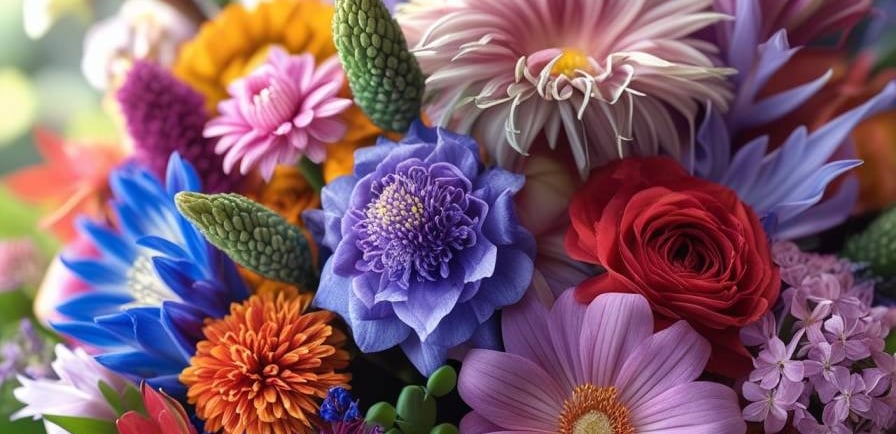The Power of Flowers on Health: Science, Beauty & Healing
Discover how flowers improve mental, emotional, and physical health. Explore science-backed benefits and how to use flowers for natural healing and wellness.
HEALTH & AWARNESS
Tapas Kumar Basu
6/13/20256 min read


The Power of Flowers on Human Health: Science, Beauty & Healing
Flowers are more than just symbols of beauty or expressions of love. For centuries, civilizations around the world have used flowers for their healing properties physically, emotionally, and mentally. Modern science is now catching up with ancient wisdom, confirming that flowers can have a profound impact on our health and well-being.
From boosting mood and reducing stress to aiding sleep and supporting immune function, flowers are powerful, natural allies in promoting holistic wellness. In this comprehensive guide, we'll explore the science-backed benefits of flowers, how to use them in daily life, and why their power is more than just aesthetic.
Table of Contents
The Psychology of Flowers
Flowers as Natural Remedies
Floral Scents and the Science of Aromatherapy
Flowers and Mental Health
Physical Health Benefits of Flowers
The Healing Power of Flower Gardens
Flowers: The Natural Source Behind Every Drop of Honey
Flowers and Cultural Healing Traditions
How to Incorporate Flowers Into Daily Wellness Routines
The Hidden Side of Beauty
Ready to Get Started?
Conclusion
Call to Action
1. The Psychology of Flowers: How Colors and Scents Influence Mood
The presence of flowers can significantly influence our emotional state. Studies show that simply looking at or smelling flowers can elevate mood, reduce anxiety, and even increase feelings of compassion and happiness.
How Flowers Affect the Brain:
Color Therapy: Colors like blue, lavender, and pink are associated with calmness and emotional balance. Bright flowers like sunflowers or daisies can evoke joy and energy.
Aromatherapy: Floral scents such as lavender, rose, jasmine, and ylang-ylang have been shown to reduce cortisol (the stress hormone), improve mood, and support mental clarity.
Scientific Insight:
A 2005 study published in Evolutionary Psychology found that people who received flowers demonstrated an immediate increase in happiness and long-term positive mood changes.
Key Benefits:
Decreased anxiety and stress
Enhanced emotional resilience
Improved interpersonal interactions
2. Flowers as Natural Remedies: Healing Beyond Aesthetics
Flowers have long been used in traditional medicine, and many still hold therapeutic value today. Whether consumed, applied topically, or inhaled as essential oils, their active compounds can aid in treating various ailments.
Popular Medicinal Flowers:
Chamomile: Known for its calming effects and digestive support. Commonly used in teas to ease anxiety and promote sleep.
Calendula: Contains anti-inflammatory and antimicrobial properties. Often used in skin care for wounds and irritations.
Lavender: Reduces stress, improves sleep, and may alleviate mild pain and headaches.
Echinacea: Boosts the immune system and helps prevent colds and respiratory infections.
Hibiscus: Rich in antioxidants, supports cardiovascular health, and may help lower blood pressure.
Scientific Evidence:
A study in the Journal of Ethnopharmacology confirmed that chamomile extracts have anxiolytic (anti-anxiety) and sleep-promoting properties comparable to low-dose benzodiazepines.
3. Floral Scents and the Science of Aromatherapy
Our sense of smell is directly connected to the limbic system in the brain, which governs emotions, memories, and behavior. This is why floral aromatherapy has such a profound effect on mood and mental health.
Top Floral Oils and Their Uses:
Rose Oil: Often used for relaxation, reducing depressive symptoms, and enhancing feelings of love and security.
Jasmine Oil: Uplifts mood and can improve alertness and libido.
Geranium Oil: Balances hormones and supports emotional stability.
Neroli Oil (from orange blossoms): Known to calm the nervous system and support sleep.
Scientific Support:
A 2013 study in Evidence-Based Complementary and Alternative Medicine showed that inhaling rose oil reduced anxiety in women undergoing medical procedures more effectively than placebo.
4. Flowers and Mental Health: Depression, Anxiety, and Cognitive Function
The impact of flowers on mental health is especially important in today's world, where stress, anxiety, and depression are widespread. The integration of flowers into living spaces, therapy settings, or daily rituals has been shown to improve psychological well-being.
Key Benefits:
Reduced Symptoms of Depression: Flowers create a calming environment that can uplift individuals suffering from mood disorders.
Increased Cognitive Performance: A study by Rutgers University found that flowers enhance creative problem-solving and concentration.
Social Connection: Giving or receiving flowers fosters interpersonal bonds, which are vital for emotional health.
Case Study:
A study published in Complementary Therapies in Medicine (2015) showed that hospital patients who had fresh flowers in their rooms reported lower pain scores, needed fewer medications, and had shorter recovery times.
5. Physical Health Benefits of Flowers
Flowers not only support mental wellness but also contribute to physical healing. Their antioxidant, anti-inflammatory, and antimicrobial properties can be harnessed in a variety of ways.
Health-Supporting Floral Extracts:
Hibiscus: Helps regulate cholesterol and blood pressure.
Elderflower: Traditionally used for cold and flu relief.
Passionflower: Assists with insomnia and high blood pressure.
Marigold (Calendula): Accelerates skin healing and reduces infections.
Application Methods:
Teas and infusions
Tinctures and extracts
Balms, lotions, and compresses
Research Highlight:
A 2012 review in Phytotherapy Research confirms that flower-based polyphenols help reduce inflammation and oxidative stress, key contributors to chronic disease.
6. The Healing Power of Flower Gardens and Nature Therapy
Being in nature, especially surrounded by flowers, can profoundly affect human health. Horticultural therapy is a growing field used in hospitals, rehabilitation centers, and mental health treatment programs.
Benefits of Flower Gardening:
Physical Activity: Gardening encourages low-impact exercise.
Mindfulness and Stress Relief: Engaging with soil and nature promotes relaxation and present-moment awareness.
Sensory Engagement: The sight, scent, and touch of flowers stimulate multiple senses, enhancing brain health.
Therapeutic Use Cases:
Dementia and Alzheimer’s therapy
PTSD rehabilitation
Depression treatment in seniors
Scientific Study:
A Japanese study published in Public Health (2017) demonstrated that just 30 minutes of walking in a flower-filled park significantly lowered heart rate and blood pressure compared to urban walking.
7. Flowers: The Natural Source Behind Every Drop of Honey
Flowers play an indispensable role in the production of honey, providing the nectar that bees transform into this nutrient-dense natural food. Rich in antioxidants, enzymes, and healing compounds, honey supports overall nutrition, boosts immunity, and helps protect the body from a variety of illnesses making flowers not just symbols of beauty, but foundational contributors to human health.
8. Flowers and Cultural Healing Traditions
Throughout history, flowers have played essential roles in healing rituals and spiritual practices.
Examples from Around the World:
India: Lotus and jasmine are used in Ayurvedic rituals for mental clarity and energy balance.
China: Chrysanthemum tea is consumed to improve vision and relieve headaches.
Hawaii: Lei-making with native flowers is used for celebration, peace, and healing.
These time-tested traditions reflect a deep understanding of flowers as tools for holistic wellness.
9. How to Incorporate Flowers into Daily Wellness Routines
You don’t need a garden or special equipment to benefit from flowers. Simple, mindful integration into your lifestyle can yield real results.
Practical Ways to Use Flowers:
Fresh Bouquets at Home: Keep them in your living space to uplift mood.
Floral Teas: Chamomile, rose, lavender, and hibiscus offer health benefits in every cup.
Aromatherapy Diffusers: Add essential floral oils to your diffuser for mental clarity and emotional balance.
Floral Baths: Soaking in water infused with petals and essential oils calms the nervous system.
Skincare: Use flower-based products with calendula, rosewater, or chamomile for natural beauty care.
Mindful Practice:
Spend 5–10 minutes each day sitting quietly with a flower, noticing its colors, patterns, and fragrance. This simple act of mindfulness can enhance focus, reduce stress, and cultivate gratitude.
10. The Hidden Side of Beauty: When Flowers Harm
While flowers offer numerous health benefits, they can also pose health risks when misused or encountered in the wrong context.
1. Allergies and Respiratory Reactions
Pollen Allergy (Hay Fever): Common symptoms include sneezing, watery eyes, and asthma. Culprits include sunflowers, daisies, and ragweed.
Fragrance Sensitivity: Strong-smelling flowers (e.g., lilies, hyacinths) can trigger headaches or breathing issues in sensitive individuals.
2. Skin Irritations
Some flowers contain compounds that irritate the skin:
Chrysanthemums and Tulips: Can cause dermatitis and dry skin conditions.
Daffodils: Their sap can trigger redness and itching.
Primulas: Known for causing allergic rashes (primin exposure).
Photodermatitis: Contact with some flowers can make skin sun-sensitive, leading to rashes.
3. Toxicity: Poisonous Flowers
Numerous ornamental flowers are toxic if ingested, particularly dangerous for children and pets:
Foxglove, Lily of the Valley: Can cause heart irregularities.
Oleander, Hydrangea, Azalea: Toxic even in small quantities, affecting nerves, heart, and digestive systems.
Wisteria and Daffodil Bulbs: Cause nausea and vomiting if consumed.
11. Ready to Get Started? A Natural Step Toward Better Health
Incorporating flowers into your life is one of the simplest, most beautiful ways to promote well-being. Whether you're sipping chamomile tea before bed or admiring a vase of fresh roses on your desk, each interaction with flowers strengthens your connection to nature and yourself.
Start Today with These Simple Actions:
Buy or grow a small pot of lavender or chamomile for your room.
Drink one cup of floral tea each evening to wind down.
Add a few drops of rose or jasmine oil to your bath or diffuser.
Gift a loved one fresh flowers to brighten their day and yours.
12. Conclusion: Let Nature Bloom into Your Wellness Routine
Flowers are nature’s gentle healers. Their beauty is not only pleasing to the eye but deeply therapeutic for the body and mind. Backed by science and centuries of tradition, flowers deserve a meaningful place in your wellness routine.
Whether you’re managing stress, improving sleep, or simply craving a deeper connection with nature, let the power of flowers guide you. Their natural fragrance, vibrant color, and healing properties make them a powerful and accessible part of any self-care practice.
13. Call to Action:
Ready to experience the power of flowers for yourself? Start small, be consistent, and tune into how your body and mood respond. If this article inspired you, share it with a friend, explore our recommended floral wellness products, or sign up for our free newsletter for more natural health tips.
Explore fitness, meditation, and healthy living tips.
© 2025. All rights reserved.
